Java vs PHP: Which is Best for Web Development?
The debate over Java vs PHP as the best programming language for web development continues to shape the choices of developers and businesses alike. While Java excels in creating robust, scalable enterprise-level applications, PHP development stands out for dynamic web pages and smaller-scale projects. This detailed exploration dives into their features, applications, strengths, weaknesses, and use cases to help you decide the right language for your web development needs.
What is Java?
Java is a high-level, object-oriented programming language designed for flexibility and cross-platform capability. Its principle, Write Once, Run Anywhere (WORA), enables seamless execution across devices with a Java Virtual Machine (JVM). Java’s strong ecosystem, including frameworks like Spring and Hibernate, and its support for multithreading, make it a favorite for enterprise applications and web development.
Key Features of Java:
- Object-Oriented: Focuses on modular, reusable code structures.
- Platform Independence: Bytecode runs on any device with JVM.
- Concurrency: Supports parallel task execution.
- Security: Built-in features to create secure applications.
- Extensive APIs and Libraries: Comprehensive tools for development.
- Real-time Use: Perfect for IoT, Android apps, and large-scale backend systems.
What is PHP?
PHP (Hypertext Preprocessor) is a widely used server-side scripting language. Renowned for its simplicity and seamless integration with HTML, PHP development focuses on creating dynamic web applications with minimal effort. Its role in powering popular CMS platforms like WordPress has cemented its place as a staple for developers working on web-based projects.
Key Features of PHP:
- Open Source: Free and widely supported.
- HTML Embedded: Enhances interactive, server-side scripting.
- Cross-Platform: Compatible with Linux, macOS, and Windows.
- Dynamic Content: Ideal for small-scale websites.
- CMS Support: A backbone for platforms like Joomla and Drupal.
- Speedy Development: Quick to deploy and manage applications.
Java vs PHP: A Detailed Comparison
| Aspect | Java | PHP |
| Type | Object-oriented, platform-independent | Server-side scripting |
| Best For | Enterprise-level applications | Small-to-medium-scale websites |
| Learning Curve | Moderate to challenging | Beginner-friendly, easy to learn |
| Performance | Faster, optimized for complex tasks | Moderate, improved with PHP 7 and PHP 8 |
| Security | Advanced in-built security mechanisms | Requires external frameworks |
| Cost | Paid licenses for tools and frameworks | Free, open source |
| Concurrency | Strong multithreading support | Limited concurrency use |
| Community Support | Extensive with large-scale enterprise focus | Strong in web-based CMS projects |
| Frameworks | Spring, Hibernate, Apache Struts | Laravel, CodeIgniter, Symfony |
| Deployment | Requires JVM | Easy deployment with basic tools |
| Speed of Development | Slower for prototyping | Faster for web applications |
| Extensibility | Highly extensible with numerous tools | Adequate for smaller applications |
Java for Web Development
Java’s powerful capabilities make it the top choice for enterprise web solutions.
Advantages of Using Java for Web Development:
- Enterprise-Level Scalability: Easily handles complex, resource-heavy applications.
- Enhanced Security: Offers features like bytecode verification and sandboxing.
- Multiplatform Flexibility: Runs on any JVM-compatible device.
- Robust Ecosystem: Frameworks like Spring and Struts streamline the development process.
- Rich Developer Tools: IDEs like Eclipse, IntelliJ IDEA, and debugging tools ensure efficiency.
Use Cases of Java for Web Development:
- Enterprise portals for businesses.
- Large e-commerce platforms.
- Backend solutions for IoT-enabled systems.
- Financial and banking applications.
- Real-time analytics platforms.
PHP Development for Dynamic Websites
PHP is well-suited for building websites requiring dynamic interactions and is especially effective in budget-conscious scenarios.
Advantages of PHP Development:
- Easy to Learn: Minimalistic syntax makes it beginner-friendly.
- Cost-Effective: Open-source nature eliminates licensing expenses.
- Integration Capabilities: Works seamlessly with databases like MySQL and content management systems.
- CMS Dominance: Integral to platforms like WordPress, powering over 40% of websites worldwide.
- Rapid Development: Suitable for projects with tight deadlines.
Use Cases of PHP Development:
- Content management systems.
- Blogging platforms.
- Small-to-medium business websites.
- Web forms and dashboards.
- Online reservation systems.
Key Differences: Java vs PHP
1. Performance
- Java: Its precompiled bytecode offers consistent performance in large-scale applications. Ideal for backend systems processing extensive data.
- PHP: While slower than Java initially, PHP 7 and 8 have introduced substantial speed improvements with JIT compilation.
2. Security
- Java: Known for intrinsic security measures embedded into the language design. Java apps are less prone to vulnerabilities.
- PHP: Often criticized for historical security lapses; modern PHP development uses frameworks like Laravel to mitigate risks.
3. Deployment Flexibility
- Java: Needs JVM installed, making initial setup complex.
- PHP: Easily deployable and compatible with most hosting environments.
Future Prospects: Java vs PHP
PHP Development:
PHP remains a dominant choice for dynamic websites and small-to-medium enterprises. Despite facing competition from modern technologies like Node.js and Python, its affordability and vast CMS integration options ensure a steady demand.
Java for Web:
Java continues to excel in enterprise applications and shows strong future prospects in IoT, big data, AI, and machine learning. Its versatility in creating robust, secure systems ensures its relevance in the technology landscape.
Making the Right Choice
The right choice between Java vs PHP largely depends on the project scope, complexity, and budget:
- Choose Java for scalability, security, and enterprise solutions.
- Opt for PHP for rapid development and cost-effective dynamic websites.
Conclusion
Both Java vs PHP offer unique strengths, making them ideal for different types of projects. For small to mid-scale websites, PHP development provides an affordable and efficient solution. Meanwhile, Java for web stands out in enterprise and resource-intensive scenarios. Your ultimate choice should align with your application needs, budget, and technical expertise.
Additional Insights: FAQs
1. Is PHP easier to learn compared to Java?
Yes, PHP has a simpler syntax and is easier for beginners to pick up. Java, while more structured, has a steeper learning curve due to its object-oriented features.
2. Can I use Java for web development effectively?
Absolutely! Java is widely used for web development, especially in enterprise applications, thanks to its robust frameworks and multithreading capabilities.
3. Is PHP suitable for e-commerce sites?
Yes, PHP is a great choice for e-commerce sites due to its integration with CMS platforms and ease of deployment.
4. Which language is better for large-scale applications?
Java is better for large-scale applications as it offers better performance, security, and scalability.
5. Does PHP offer good community support?
Yes, PHP has a vast community that continuously contributes tools, libraries, and frameworks for web development.
6. Which has better future-proofing: Java or PHP?
Java has a stronger presence in emerging fields like AI and IoT, ensuring its long-term relevance. PHP remains vital for content-based websites and CMS platforms.
Read More For More Blog: Comparing Java and C#: Pros, Cons, and Use Cases


